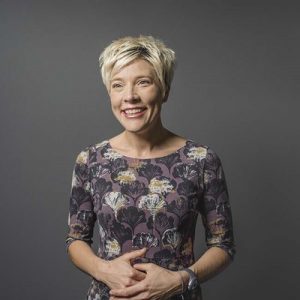 Cancer is a tough enough challenge for anyone to face. But if you also have a learning disability, the experience of diagnosis, treatment and recovery can be even harder.
Cancer is a tough enough challenge for anyone to face. But if you also have a learning disability, the experience of diagnosis, treatment and recovery can be even harder.
So, it was great to hear about the work of one of our PhD students, Charlotte Nutting.
Charlotte has devoted her research to finding out about the radiotherapy experience of people who have learning disabilities, and cancer.
What is your research focused on, Charlotte?
My aim is to explore the perspectives and processes involved in radiotherapy for people who have learning disabilities and cancer.
My study is a joint research project between Hallam and La Trobe University in Australia. It covers the journey from decision making, treatment and post-treatment support.
What are some of the barriers that people with learning disabilities face?
Despite having greater holistic needs compared to people who do not have learning disabilities, their needs tend to be less well met.
Many contributing factors in health and social care act as barriers. For example, practitioners don’t always make Reasonable Adjustments (Equality Act, 2010) or uphold the principles of capacity legislation (Mental Capacity Act, 2005).
My study will identify barriers and enablers from different peoples’ perspectives – including people with learning disabilities, family members, paid carers, and healthcare professionals.
This insight will feed into the development of a framework for supporting and empowering people with learning disabilities during radiotherapy decision making, treatment and post-treatment support.
Are people with learning disabilities at a disadvantage when it comes to early diagnosis?
Cancer in people with learning disabilities is often diagnosed at an advanced stage. Their access to cancer investigations can be limited when reasonable adjustments aren’t made. Sometimes practitioners may make assumptions about a person’s ability or willingness to participate in and tolerate investigations.
How can cancer care practitioners support people with learning disabilities?
Mencap’s Treat Me Well health campaign provides examples of Reasonable Adjustments that can be made in healthcare settings for a person with a learning disability.
Why did you decide to do this research, Charlotte?
I’ve taken on this joint PhD programme between Hallam and La Trobe University in Australia because it offers me an international learning experience. It’s a fantastic opportunity to undertake research in England and Australia on this topic.
The research reflects my professional areas of interest. I’m particularly curious about how people with learning disabilities are involved and empowered in their own care and support. Also, I’m interested in how the health and social care professionals supporting people apply capacity and equality legislation.
How have you been working with organisations, such as the College of Radiographers?
The College of Radiographers and the Down’s Syndrome Association have agreed to provide input to the study. Both organisations will be involved in the project Advisory Group.
The College of Radiographers is also involved in a scoping review for the study to identify, map, and present an overview of the existing evidence base and gaps in relation to the cancer pathway and people with learning disabilities.
And what do you hope will be the result of your research into the experiences of patients with learning disabilities?
The main objective of the study is to develop a framework. This will support and empower people with learning disabilities who have cancer through the processes of radiotherapy decision making, treatment and post-treatment support. We anticipate that this framework will be the basis for developing practice guidelines, which will be a follow-on project.
Where can people find out more?
I’ll be giving a presentation about the study at Hallam’s Cancer Management Research seminar series on Thursday 8 June. Please email me at c.nutting@shu.ac.uk if you’d like to join the session.
Staff who would like to find out more about learning disabilities may find this a useful starting point – What is a learning disability? | Mencap
Health and social care staff at Hallam will no doubt be aware of The Oliver McGowan Mandatory Training on Learning Disability and Autism that was launched in late 2022.
References
Barr, O., & Gates, B. (2019). Oxford Handbook of Learning and Intellectual Disability Nursing. (2nd ed.) Oxford University Press.
Charlotte was interviewed by Caroline Pudner (Internal Communications Coordinator). You can see the original article here